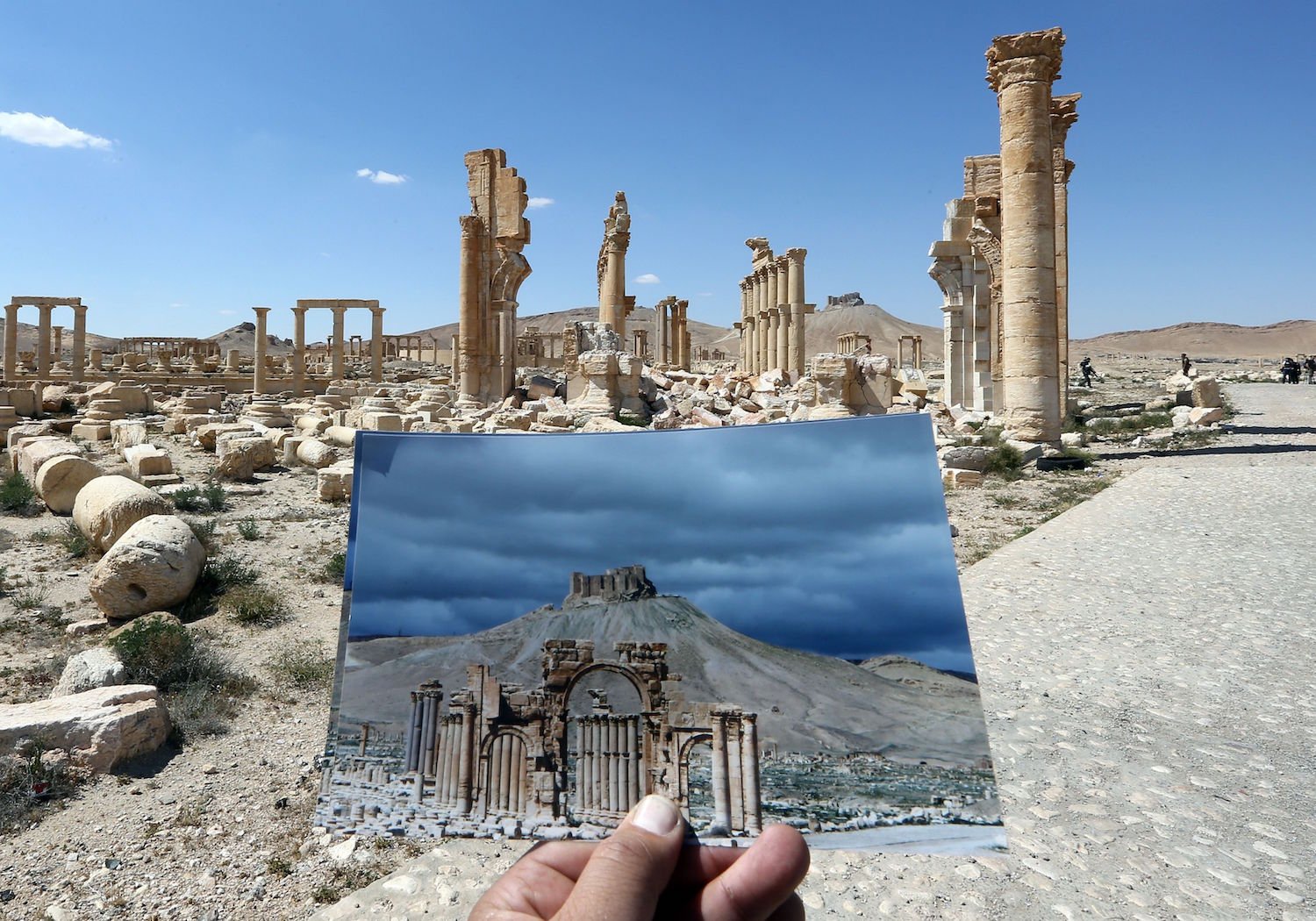
Four years after the Islamic State began its campaign to destroy ancient cultural heritage in Syria and Iraq, the Russian government has announced plans to work with Syrian authorities to restore the National Museum of Palmyra.
Mikhail Piotrovsky, the director of the State Hermitage Museum in Saint Petersburg, oversaw the signing of the agreement in Damascus this week, according to the Art Newspaper.
The agreement is a “tangible step in the significant development of museum and research ties between Russia and Syria,” according to a statement on the Hermitage’s website.
The partnership also includes representatives from UNESCO, who will form an advisory group with Russian experts and delegates from the Aga Khan Foundation, and conservators from the National Museum of Oman, who will work with the Hermitage to restore a selection of 20 Syrian artifacts.
A group of experts is also being convened to advise on the eventual restoration of the city of Palmyra. Piotrovsky, however, asked for patience in achieving that ultimate goal. “We are preparing for the day after tomorrow, it’s not yet possible to do anything tomorrow,” he said, according to the Art Newspaper.
This is not the first time that the Russian government has become involved in Syrian cultural affairs. In 2016, a Russian team created a 3D model of Palmyra to evaluate changes to the city following its partial destruction by the Islamic State.
The Russian government’s involvement in the Middle East is part of a long-term strategy to fill the power gap left by the United States. Russia, which has long supported Syrian President Bashar al-Assad in the country’s prolonged and devastating civil war, has found extra room to maneuver following the withdrawal of US troops from Syria in October.